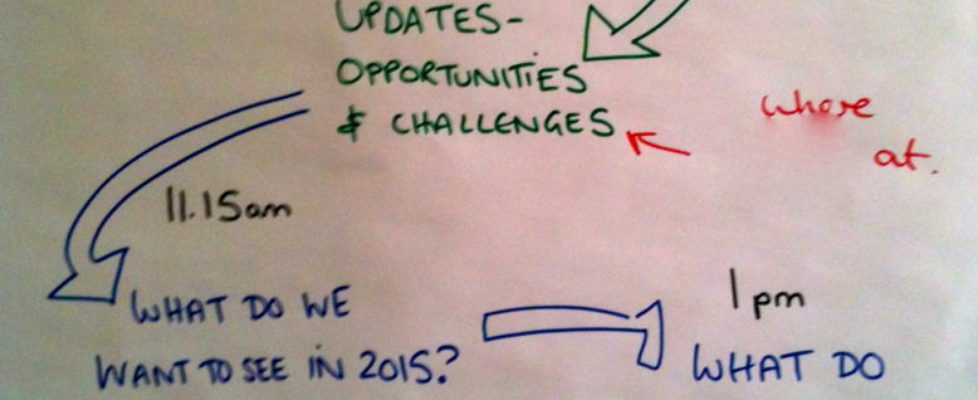Facilitating strategy planning sessions
Last week Carl and I facilitated a strategy planning meeting for a coalition of international NGOs. We started with an agenda we had put together with the meeting organiser. It covered:
– discussion on the external context
– what the group wanted to see happen
– how they could get there
finishing with reflection on resources, capacity and commitment.
However during the morning this structure was abandoned by the group, who wanted to spend more time exploring their vision for their coalition, and its role in influencing and pushing for change on the issues they are focused on.
Our willingness to respond to the group’s direction seemed to work and participants appreciated our flexibility. As one of them said, it“allowed the group to take the agenda to a new place, which meant we had a better day.” Though another felt that it would have been helpful if we had been more directive – “maybe let us go on too much. Too much discussion.”
As you would expect they were an articulate and engaged group with lots of different opinions; discussion was not difficult to encourage. So it was fairly light touch facilitation, we summarised, asked questions, listened, recorded and nudged the group towards agreeing some next steps and actions. I am not sure that they got to where they thought they wanted to get to by the end of the day, but I think they took a couple of steps forward and had valuable discussions along the way.
Two thoughts on what helped, and what would have helped more:
– Co-facilitation – Carl and I alternated throughout the day between facilitating the discussion and keeping a record of key points on flips on the wall to support the discussion. In such a fast flowing, intellectual conversation on complex topics it would have been impossible to attempt to do both alone.
– As a few participants noted in it would have helped if more members of the group had been involved in pre-meeting discussions about the overall objectives and agenda for the day. Creating the space and time to factor this into the planning phase would have allowed everyone to arrive with a better understanding of what they were hoping to achieve.
Hannah


